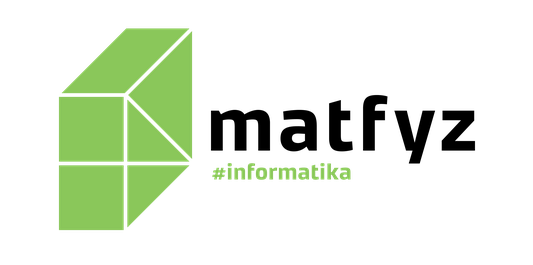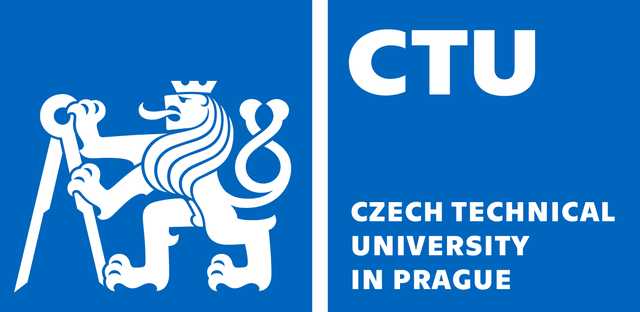High Visual Computing 2026
The eleventh meeting of the Czech and Slovak image processing, computer graphics and computer vision people in the mountains. The event will take place January 28 - January 31, 2026 at High Tatra Mountains (aka Vysoké Tatry, Tatry Wysokie, Hohe Tatra, Magas-Tátra), Slovakia in Congress Centre ACADEMIA https://kcacademia.sav.sk/ (see the map).
The goal of the meeting is to encourage exchange of ideas between researchers and practitioners in the fields of image processing, computer graphics and computer vision from across the Czech and Slovak Republics and beyond. There will be many (optional) outdoor activities possible during the day and fruitful talks, discussions and socializing in the afternoons and evenings.
The prices negotiated with the Congress Centre ACADEMIA are as follows:
- single occupancy (of a double room) 240 EUR per person for 3 nights, 3x half board
- non-single occupancy (in double rooms, with option of third bed) 180 EUR per person for 3 nights, 3x half board
Frequently Asked Questions:
Q: How do I register?
A:
Please fill out the form. While registering, you will be asked to include the title and a short
abstract of your offered 20 minute talk. Sending your abstract does not necessarily mean you will be selected to present, but the title and abstract are still a strict requirement for the registration - intended to keep the standard of the presented material consistently high. Remember: one person registered = one talk title/abstract. Once you fill out the form and you book accommodation at the hotel, take the registration as confirmed.
Q: I am from a company and I do not have anything "sciency" enough to show. May I still come?
A: By all means! We are eager to learn what your company works on and what you work on in the company, what interesting open problems you might have, etc. That said, no shameless corporate advertising, please.
Q: What is the conference fee and how do I pay it?
A: There is no conference fee per se. All you need to do is pay for your food and accommodation on the spot at the hotel. We will *not* be collecting your money.
Q: Do I need to look for accomodation?
A: Yes, please book your room by sending an email to recepcia@kcacademia.sk (CC to hacklova@sisal.mff.cuni.cz) with the subject of your email HiVisComp 2026. Please, indicate the dates of your stay, in case of family groups also number of persons (adults and children) and the billing address to which you wish to have your invoice issued. If you know who you would like to share a room with, you can make a reservation for both of you at once. Everyone is staying in the same hotel, which is pre-booked for us. There is no pre-payment this time, payment for your reservation will be made at the hotel. Should you have any special requirements concerning accommodation or food, please contact Radka Hacklova.
Q: Do I need to take care of my travel arrangements?
A: Yes, travel is up to you. We will send an info email about this to all the registered participants in due time.
Q: Summing it all up, what’s the timeline between now and the conference?
A: Easy. You fill out the registration form, including the offered talk abstract, before the submission deadline. Then you need to book your room by the deadline. By the end of December, we will assemble the program from the offered talks and post it online. In December, we will send an email with practical information to all registered participants. You will have more than one month to arrange your travel. You are expected to arrive to the hotel by the afternoon on the first HiVisComp day, where we’ll have dinner and the conference program will start right after the dinner.
Programme:
28.1.2026 Wednesday:
- 10:00 - 17:00
- optional socializing outdoors
- 18:00 - 19:00
- dinner
- 19:00 - 19:15
- welcome
- 19:15 - 20:00
- invited talk 1 (Jaroslav Křivánek Lecture): John Collomosse, University of Surrey, Guildford, United Kingdom: Fighting Fake News and Pirates: Anchoring Trust with Media Provenance
- 20:15 - 21:20
- talks 1 - 3:
- Karol Myszkowski (MPII Saarbruecken): MILO: A Lightweight Perceptual Quality Metric for Image and Latent-Space Optimization
- Viktor Kocur (Comenius University): RePoseD: Efficient Relative Pose Estimation With Known Depth Information
- Jonáš Rosecký (Masaryk University): TerraTinker – Crafting Playful Visualizations from Geospatial Data
- 21:20 - 02:00
- socializing indoors
29.1.2026 Thursday:
- 7:30 - 9:30
- breakfast
- 10:00 - 17:00
- socializing outdoors
- 17:00 - 17:45
- talk 4 - 5:
- Ondřej Smrž (Fine Ltd.): Geological 3D Modeling
- Chen Liu (University College London): Visual Dynamics as Neural Differential Equations
- 18:00 - 19:10
- dinner
- 19:10 - 20:00
- invited talk 2: Martin Saska, Czech Technical University in Prague, Czech Republic: Computer vision onboard of autonomous aerial robots and teams of aerial robots
- 20:15 - 21:20
- talks 6 - 8:
- Jiří Filip (UTIA): How Black Is Black? Measuring and Perceiving the Appearance of Low-Reflectance Materials
- Jakub Paplham (CTU in Prague): Photo Dating by Facial Age Estimation
- Petr Felkel (CTU in Prague): Teaching transformations in computer graphics with support from an interactive tool
- 21:20 - 02:00
- socializing indoors
30.1.2026 Friday:
- 7:30 - 9:30
- breakfast
- 10:00 - 17:00
- socializing outdoors
- 17:00 - 17:45
- talks 9 - 10:
- Kassem Anis Bouali (Charles University): Synthetic-to-real attentive deep learning for Alzheimer’s assessment: A domain-agnostic framework for ROCF scoring
- Monika Machalová (Palacký University Olomouc): Image-Driven Latent-Dynamics Networks for Cell Viability
- 18:00 - 19:10
- dinner
- 19:10 - 20:00
- invited talk 3: Dániel Baráth, Computer Vision and Geometry Group, ETH Zürich, Switzerland: Multi-modal 3D Scene Understanding: Semantics, Structure, and How to Use Them?
- 20:15 - 21:20
- talks 11 - 13:
- Jan Čech (CTU in Prague): Robust Detection of Deepfake Images and Videos
- Michal Hradiš (Brno University of Technology): Historic handwritten text recognition - from research to a useful application
- Martin Ilčík (Procedural Design): D♭ = A Music Programming Language
- 21:20 - 02:00
- socializing indoors
Invited Speakers:
Speaker 1: John Collomosse, University of Surrey, Guildford, United Kingdom
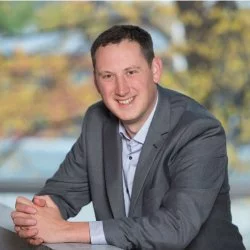
John Collomosse is a Professor of Computer Vision and AI at the University of Surrey where he is the founder and director of DECaDE, the UKRI Next Stage Centre for the Decentralized Digital Economy. He is a Fellow of the IET, Fellow of the British Computer Society, a Chartered Engineer and Senior Member of IEEE. From 2018-2024 he was on the UKRI/EPSRC advisory team for Information & Communication Technologies (ICT). He is concurrently a Senior Principal Scientist and distinguished inventor at Adobe Research, where he manages the research programme for Adobe’s Content Authenticity Initiative (CAI) and is a core technical advisor to the initiative since his involvement in co-founding the CAI in 2019. Now with 5000+ members, CAI leads a cross-industry standards group (C2PA; Coalition for Content Provenance and Authenticity) where John chairs the cross-industry task forces on watermarking, and distributed ledgers (Blockchain). John’s research intersects Artificial Intelligence (AI) and Distributed Ledger Technology (DLT), with focus on media provenance to fight misinformation and online harms, and on improving data integrity and attribution for responsible AI. John’s content watermarking and fingerprinting research is used to protect millions of images across Adobe’s platforms such as Adobe Content Authenticity, Photoshop, Lightroom and Firefly. John has also pioneered several visual search technologies, such as style, sketch and pose based search that have shipped in products such as Behance. Notably, he led the ARCHANGEL project which pioneered use of AI and Blockchain to tamper-proof National Archives around the world and was called out as a highlight of the 10 year UK Science Council (EPSRC) Digital Economy research programme. John has presented to various government bodies on provenance, authenticity and AI opt out including the European Commission, UK House of Lords and APPG Blockchain. During 2025 he was involved in the Royal Society Pairing Scheme, embedding with the DSIT disinformation capability and policy teams. John’s early research developed some of the first computer vision based technologies to create the kind of non-photorealistic (artistic) filtering effects now commonly found in products like Photoshop, and was featured in the BBC, New Scientist among others. John has also spent previous periods of time in industry R&D elsewhere, including a Royal Academy of Engineering fellowship at HP Labs, and at Vodafone R&D Munich, and IBM Research Hursley.
Fighting Fake News and Pirates: Anchoring Trust with Media Provenance
Countering modern disinformation requires moving beyond AI detection toward embedded trust signals that travel with content. In this talk, I present media provenance as an approach for encoding verifiable information about origin and modification directly into media assets. I will describe our work on embedding durable provenance signals using digital watermarking, content fingerprinting, and cryptographically signed metadata (C2PA) enabling provenance information to persist across common transformations and distribution channels. Beyond its role in content authenticity, I will show how provenance can also underpin new models for consent and value creation in the age of generative AI, including the use of causal data attribution and decentralised registries to ensure recognition and reward for creators whose work contributes to model training.
Speaker 2: Martin Saska, Czech Technical University in Prague, Czech Republic
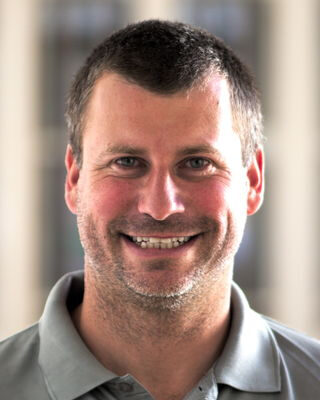
Martin Saska received his MSc. degree at Czech Technical University in Prague, 2005, and his Ph.D. degree at University of Wuerzburg, Germany, within the PhD program of Elite Network of Bavaria, 2009. Since 2009, he is a research fellow at Czech Technical University in Prague, where he founded and heads the Multi-robot Systems lab (http://mrs.felk.cvut.cz/) and co-founded Center for Robotics and Autonomous Systems with more than 70 researchers cooperating in robotics (https://robotics.fel.cvut.cz/cras/). He was a visiting scholar at University of Illinois at Urbana-Champaign, USA in 2008, and at University of Pennsylvania, USA in 2012, 2014 and 2016, where he worked with Vijay Kumar's group within GRASP lab. He is an author or co-author of >150 publications in peer-reviewed conferences with multiple best paper awards and more >80 publications in impacted journals, including IJRR, AURO, JFR, ASC, EJC, with >7500 citations indexed by Scholar and H-index 47. His team won multiple robotic challenges in MBZIRC 2017, MBZIRC 2020 and DARPA SubT competitions (http://mrs.felk.cvut.cz/projects/mbzirc, http://mrs.felk.cvut.cz/mbzirc2020, http://mrs.felk.cvut.cz/projects/darpa).
Computer vision onboard of autonomous aerial robots and teams of aerial robots
Agile and tightly cooperating Unmanned Aerial Vehicles (UAVs) in demanding real-world environments with high density of obstacles (such as forest) will be discussed in numerous industrial applications that require usage of real-time onboard image processing. Deployment of teams of flying robots without external localization such as global navigation satellite systems bring numerous challenges especially if the UAV perception must be done in high speeds and close to the terrain but is necessary to achieve industrial reliability and resiliency.
Speaker 3: Dániel Baráth, Computer Vision and Geometry Group, ETH Zürich, Switzerland
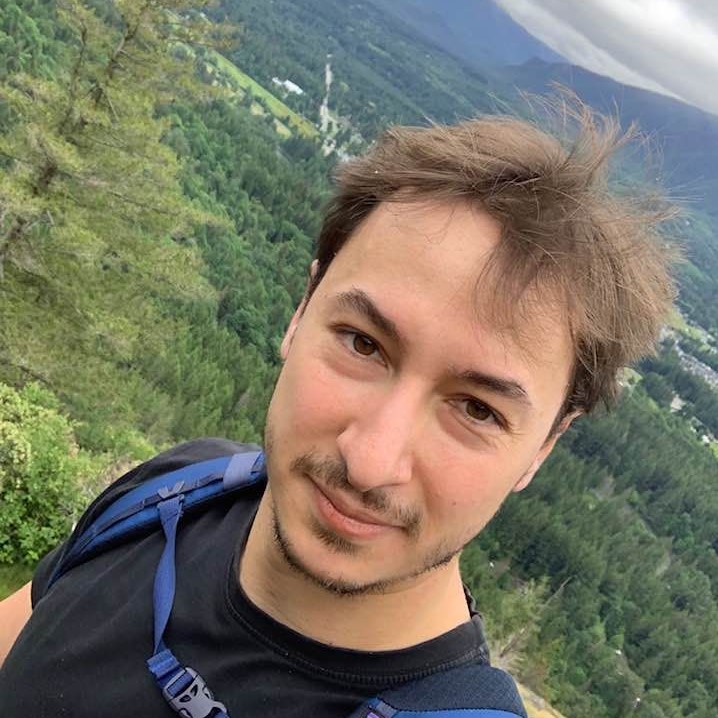
Dr. Dániel Baráth is a Senior Researcher in the Department of Computer Science at ETH Zürich, where he is a member of the Computer Vision and Geometry Group. His research primarily focuses on 3D reconstruction and scene understanding, supported by strong expertise in robust estimation, minimal solvers, and 3D geometry. Before joining ETH Zürich in 2021, he was a researcher at the HUN-REN Institute for Computer Science and Control in Budapest and the Czech Technical University in Prague, working at these institutions prior to and following the completion of his PhD at Eötvös Loránd University in 2019. Additionally, he serves as a board member of the Hungarian Computer Vision Society. He is a frequent contributor to premier computer vision conferences such as CVPR, ICCV, and ECCV, addressing advanced topics ranging from 3D scene retrieval with language to real-time quality-adaptive semantic 3D maps.
Multi-modal 3D Scene Understanding: Semantics, Structure, and How to Use Them?
3D computer vision is evolving from geometric reconstruction to holistic scene understanding. This presentation outlines a unified approach to perceiving and representing complex environments through multi-modal data. The first part of the talk focuses on 3D semantic mapping. I will describe how to transform raw inputs, including images and point clouds, into semantically consistent 3D maps. We will examine real-time adaptive strategies that handle noisy data effectively to build robust volumetric representations. The second part addresses representation. We convert these dense maps into structured 3D scene graphs, allowing to connect geometry with other modalities such as text or object relationships. This section covers hierarchical graph construction for outdoor scenes and introduces Object-X, a method to learn multi-modal object representations and reconstruct 3D Gaussian Splats directly from latent embeddings. The final part demonstrates the practical utility of these structures. I will present frameworks for 3D scene alignment, visual localization, and language-guided scene retrieval, directly leveraging these rich scene representations.
Important Dates:
- Deadline for talk proposals: November 30, 2025
- Meeting: January 28 - January 31, 2026
Venue:
Congress Centre ACADEMIA https://kcacademia.sav.sk/ (see the map), High Tatra Mountains, Slovakia.Programme and Organization Committee:
Duties: scientific program, selection of beer and everything else.

